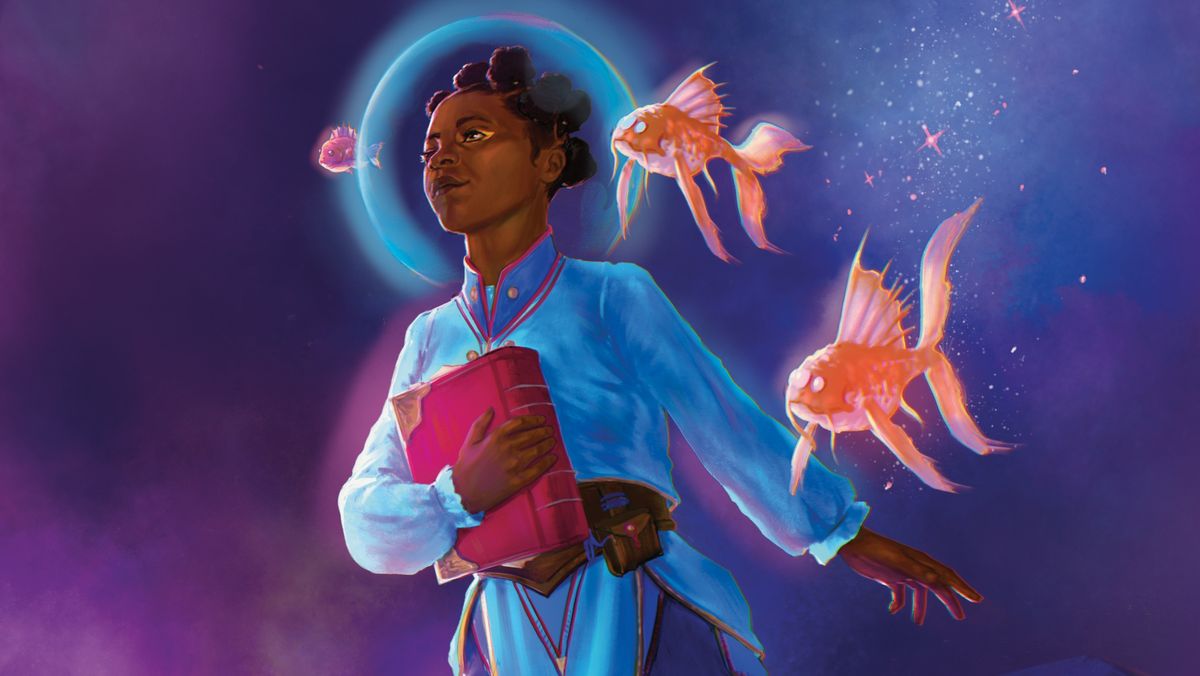D&D has a new inclusion review process to prevent another Spelljammer incident

Wizards of the Coast has announced changes to the review process for future Dungeons & Dragons publications as well as reprints in response to "the problematic content that appeared in Spelljammer: Adventures in Space" in a blog post on D&D Beyond.
The publisher previously apologized for and removed a description of Spelljammer's flying monkey-people the hadozee that was criticized for its similarity to racist stereotypes of Black people. In the blog post, D&D's senior story designer Christopher Perkins writes that, "The first printing of Spelljammer: Adventures in Space included two pieces of content that fans correctly flagged as offensive. The first is an illustration of a hadozee bard that resembles offensive minstrelsy materials and other racist depictions of Black people. The second is a paragraph about hadozees that reinforces harmful real-world stereotypes. Future reprints will omit both the illustration and the offensive text, neither of which had been reviewed by cultural experts."
Perkins explains that previous D&D books only underwent inclusion reviews "at the discretion of the Product Lead". Journeys Through the Radiant Citadel, for instance, a collection of adventures based in settings inspired by non-European folklore and written by authors from diverse backgrounds, credits multiple cultural consultants. Curse of Strahd, which had to be revised after publication to remove racially insensitive text, did not—though a subsequent book in the same setting, Van Richten's Guide to Ravenloft, did. As Perkins writes, "The studio's new process mandates that every word, illustration, and map must be reviewed by multiple outside cultural consultants prior to publication."
Detailing how the inclusion reviews will work, Perkins goes on to explain they will be conducted during text creation, art creation, and final product review, and any new content made in response to feedback from cultural consultants will also undergo a round of inclusion reviews. The process has already been applied to Spelljammer: Adventures in Space, and the resulting changes can be seen in the digital version on D&D Beyond as well as the reprinted physical copies, and in the errata pdf.
Looking over the errata shows that descriptions of the mercane and dohwar, both depicted as entire species devoted to trade, have been revised. The mercane, whose origins were previously left vague, are now described as celestial beings created by gods of commerce, while the dohwar's fey origin is emphasized. Meanwhile, the intelligent plants called aartuk are no longer motivated by following war gods, and their priests have been renamed to the more evocative "starhorrors", while the reigar's "golem" abilities have been renamed to "duplicate".
Additionally, one ending to Spelljammer's Light of Xaryxis campaign, which pushed the player-characters into essentially committing genocide—which always seemed out of place as a finale to a swashbuckling Flash Gordon adventure—has been modified to be a bit less extreme.
"We are expanding our pool of cultural consultants so that we have the expertise needed to review the variety of material we publish", Perkins finished. "We will also continue to listen to D&D fans who call attention to offensive content. We will do our best to make this process as diligent, methodical, and universal as possible, better ensuring that our products bring joy rather than cause pain to our fans."
* This article was originally published here
* This article was originally published here


Comments
Post a Comment